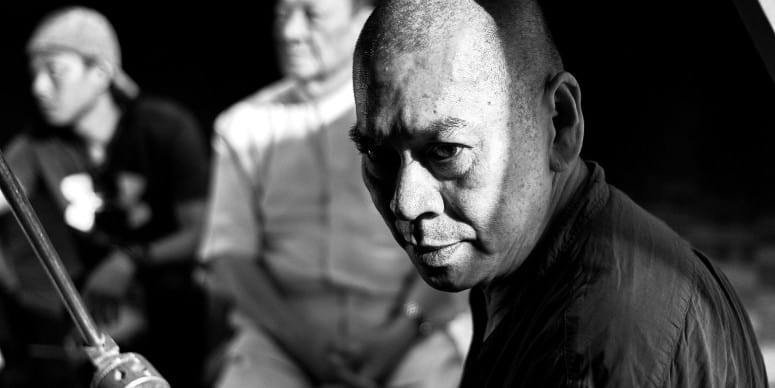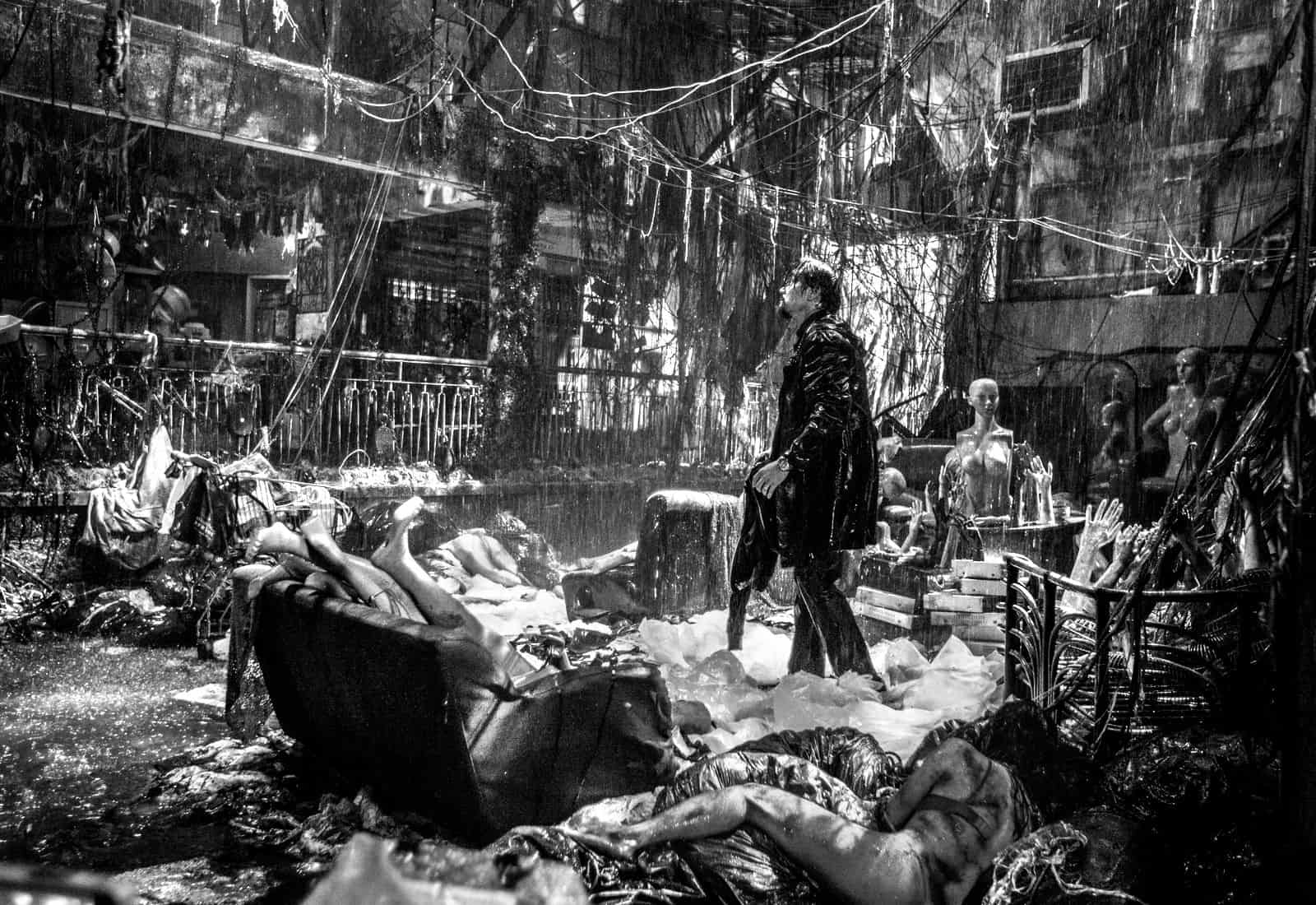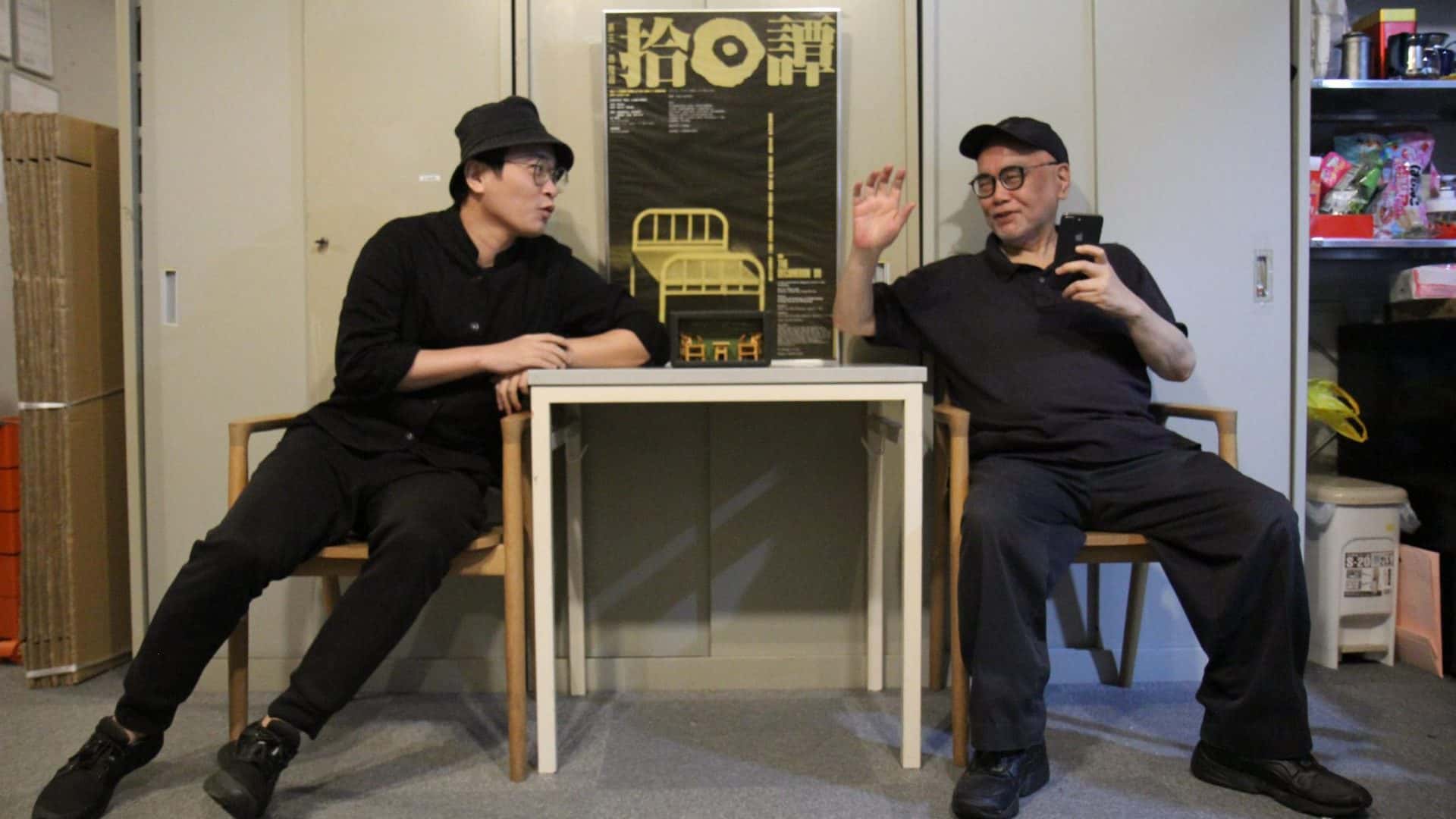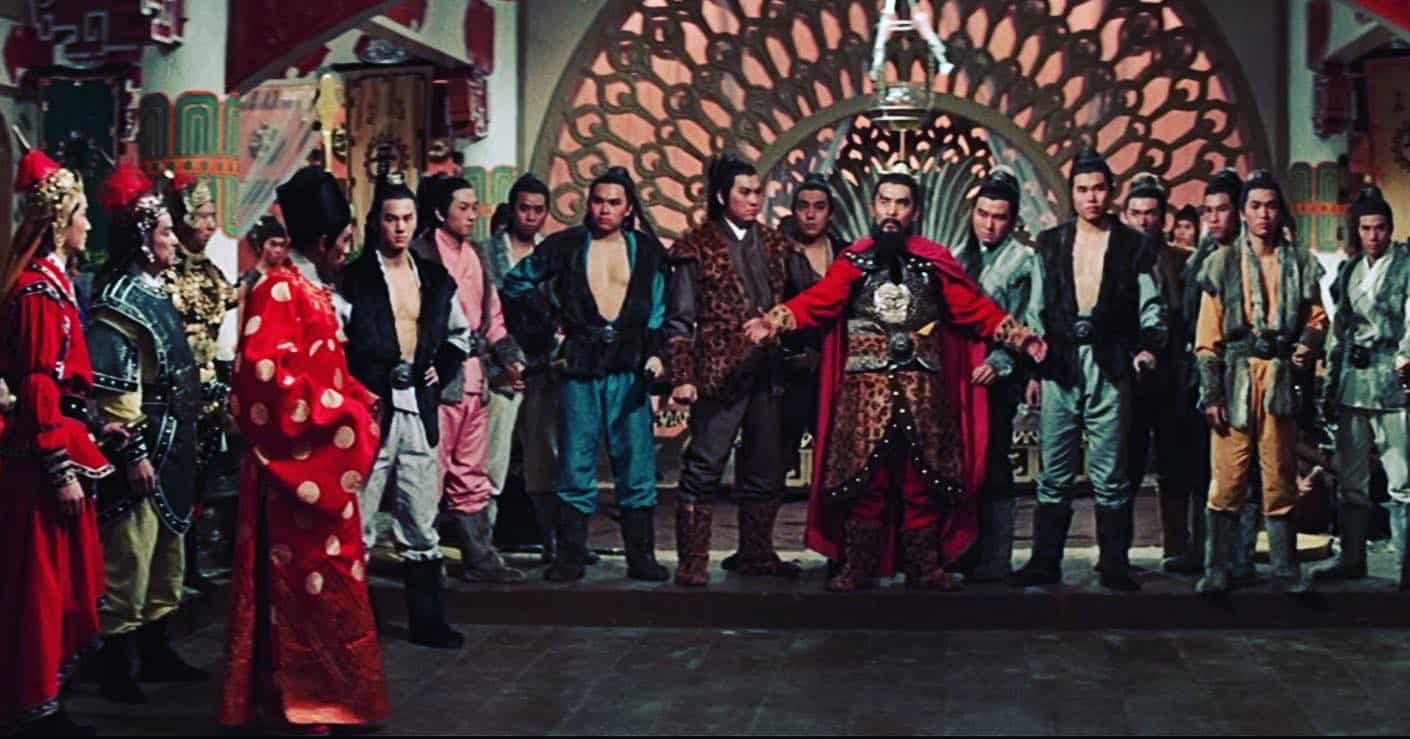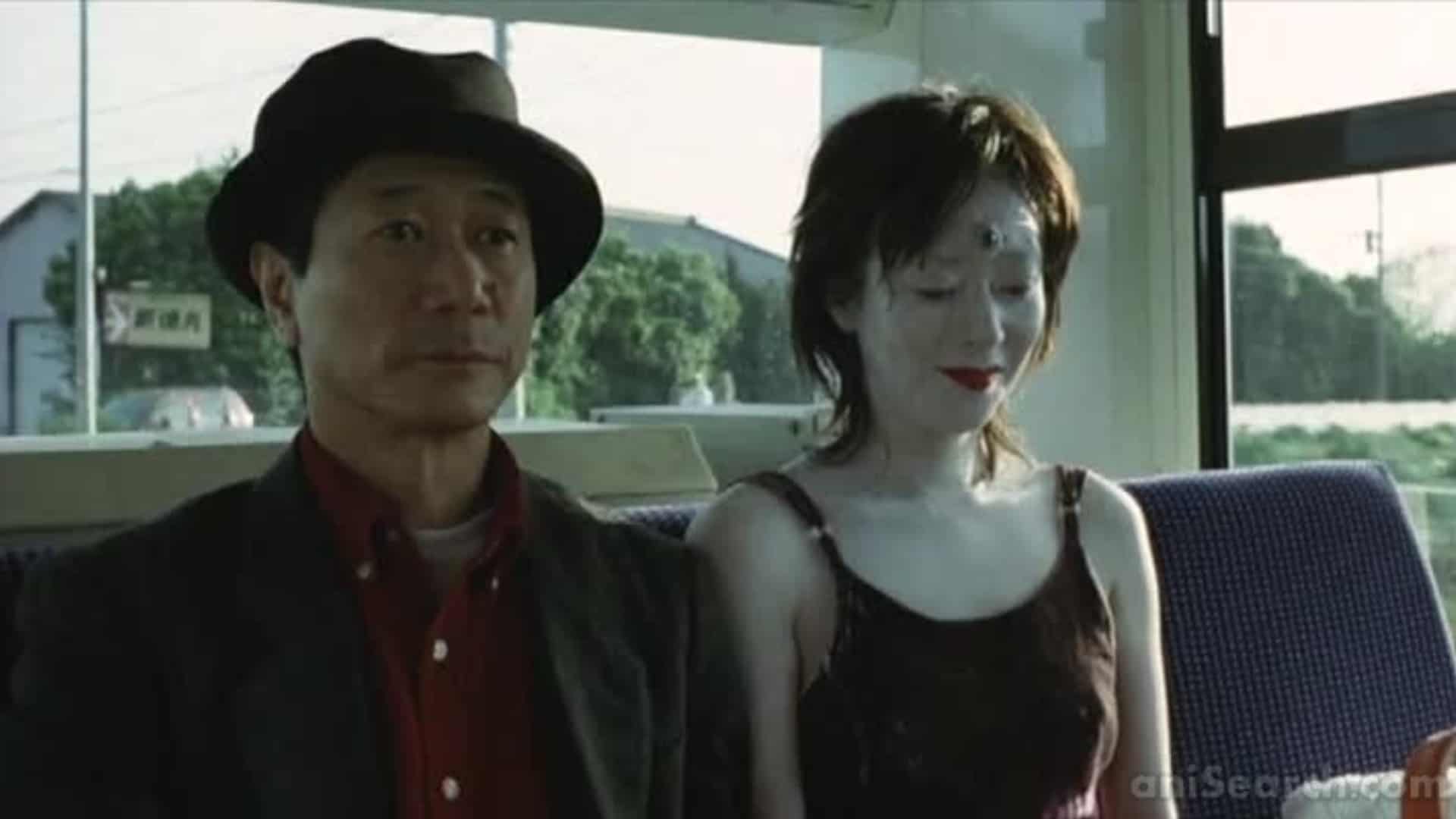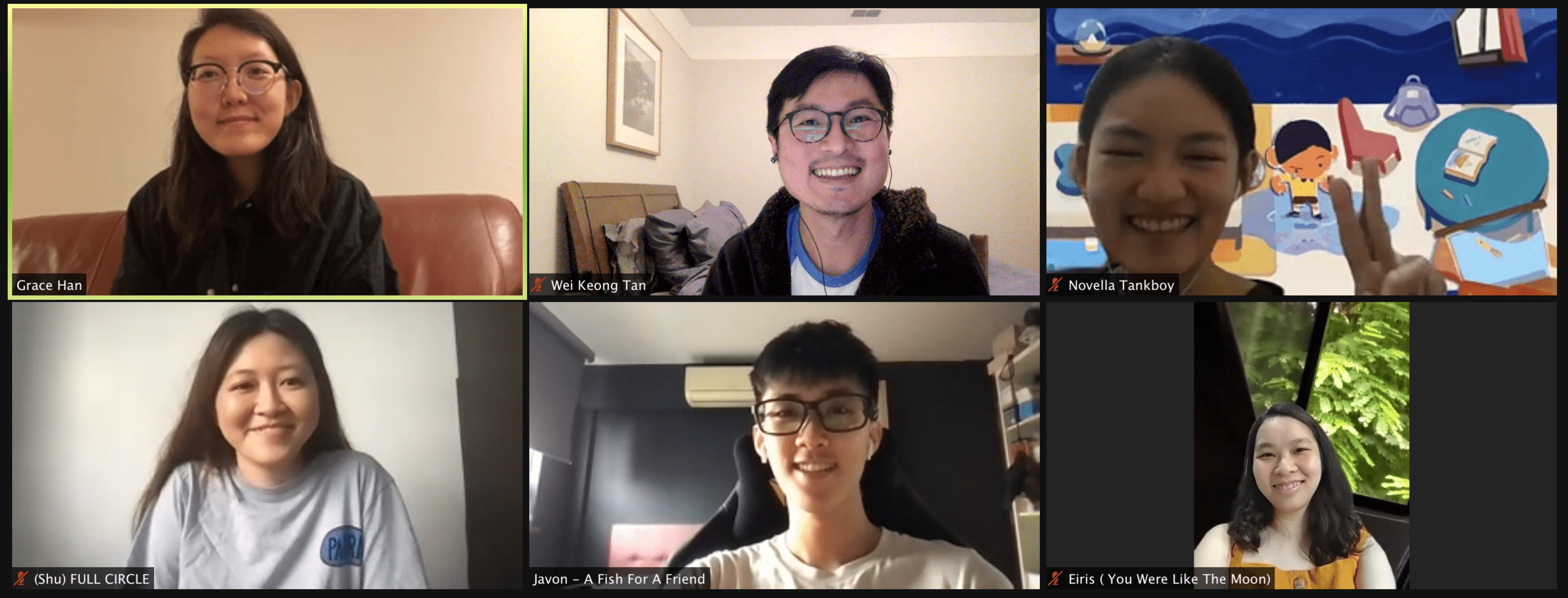Tsai Ming-liang, Malaysian-born, raised in Taiwan, a puppet master of slowness, a monk dwelling in the eeriness of time, a philosopher of human loneliness and restlesness of a body. When water is peacefully falling down, drop by drop; when lovers say one last goodbye to each other; with cinemas having their last fade-out on the screen, the audience staring at it, with tears in their eyes; when the music box waves with tunes for the last gaze between those who want to fall in love, but are lost in their solitude. This is where Tsai Ming-liang's films plunge. Delicately and slowly.
Premiering at 70th Berlinale, Tsai's recent feature Days is a slowcore contemplation of body and soul, but then again love and loneliness. It's a peacefully constructed meditation, a profound take on the deepest mistrusts of one's heartaches set in a lonely Bangkok. On the occasion of premiere of his film, we had an opportunity to have a conversation with Tsai on his current career phase, loneliness, inspirations from Charles Chaplin, slow cinema and watermelons.
The interview was held on the occasion of 70th Berlinale by Lukasz Mankowski.

Lukasz Mankowski: I remember when you started working on “Stray Dogs” (2013), you wrote a note, that you don't have passion anymore, that you feel ill. My question would be – how are you feeling now? How are you?
Tsai Ming-liang: (laughs) Actually, I'm constantly in a strange state of mind. Indeed, I don't have a great passion for making films, or rather, let me put it in different words, I don't have passion for making films that people were used to. I work a lot with museums now, some in Taiwan, so when I released “Stray Dogs” in Taiwan, it premiered for the museum first. I still have a great passion for making images and footage, but I simply want to get rid of the traditional sense of making movies for the cinema. On the contrary, I enjoy making installations and images for the galleries or museums. The thing is, that the pace of doing these experiments has become very slow, but after making “Stray Dogs”, I simply stopped making feature films in the way I used to work. Now it is very slow and it helps me getting rid of the industrialized aspect of a filmmaking process. I want to use a very small crew, very little budget, and this is how I've made “Days”.
One of the reasons I'm asking this is that in “Days” there is a music box with the theme from Charles Chaplin's “Limelight” (1952), which is not the happiest film in the world. Why have you decided to put exactly this piece of music in your film?
There's actually a story behind that. I've always enjoyed music in Chaplin films and I'm simply very fond of old films. For this reason I also have a feeling that music in the films these days is completely different than the old films back in the day. For me, cinema these days lacks emotions. I always want old elements in my films: old tunes, old songs. Two years ago, we visited the ice museum in the Netherlands. We found a music box there. When I visited Anong Houngheuangsy in Thailand, I actually gave him that as a gift. Then, when we were shooting the hotel scenes of “Days”, it hit me that, “oh, he has a music box, we can use that!”. So, I asked Anong to bring the music box for the set with him, and Lee Kang-sheng gives the music box to Anong in the film. There's some strange reality combined in the film.
Do you know the English title of this song? “Eternally” as “I will love you eternally”. In the context of “Days“, it becomes very powerful.
I used this tune twice actually, first time in “I Don't Want to Sleep Alone”, covered in Chinese. But yes, I love this song very much, that is why I decided to use it again.

The story of “Days” actually looks like a continuation of “I Don't Want to Sleep Alone” (2006) with the setting of loneliness and people lonely drifting through reality in their beds; but also “The River” (1997). The question that keeps bothering me, while watching your depiction of loneliness, is why your characters keep on waiting in their beds for someone to come?
(laughs) Who isn't like that?
They're always waiting to be puzzled up, simply spoon-hugged.
On a serious note, for me the character of Lee Kang-sheng in “Days” is the continuity of the character from “The River”. The sickness follows. The illness, it has vanished for some time, but eventually it came back, so it's like a continuous version of Lee's character from “The River” . This sickness was not just physical. It was also spiritual and it was something that one can't control nor avoid. But when we think of Anong – his body is trapped. Maybe due to his situation – he's an immigrant from Laos working in Thailand; but also due to his need – for freedom, because he can't fully feel it as a foreign laborer. He's trapped, his body is trapped and so is his mind. And thanks to the encounter they experience, Lee and Anong, they can find comfort and solace with each other. Coming back to Chaplin's tune again. The reason why I'm so attracted to it, is that for me, this is a song for the homeless. It's like an eternal quest. The reason why I've started talking about Anong is that, when I met him, the reason for my need to know him was because of his identity as a foreign worker. Why's that? When I've got to know this identity, I felt empathy. I could put myself in his position, that's why. Even if we weren't about to make a film together, I'd still want to be friends with him and get closer to him.
In your “Walker Series”, the camera slowly follows the movement of the body. Here in “Days”, the body is also present, but it's laying down, Lee and his pain; it's resting, but because of the pain it is also restless. Is this your way for stopping for a second to have negotiations with your body through Lee, your loneliness and pain? Your pain through his pain?
Imagine this. You're trapped, simply trapped. You have no idea how the exits look like. We're trapped, so when Lee is experiencing therapy or massage, it's his way for looking for the way out. He's looking for something that would ease his pain. During massage, he realizes that this pain is not just physical. It could be spiritual, it could be connected to the soul. He has to carry on with his “days”, no matter what, like the title suggests. In the final scene, we just see Anong sitting at the bus stop, waiting and playing with a music box. It's a simple scene, but for me, something very profound and deep remains in this shot.

Since you've started the “Walking Series”, you've also switched more to the importance of time-slowness relation. What is your approach to slow cinema now?
If you take your time, just make it a long take. The longer you take, the time comes out. I actually love the first frame very much and I wanted it to be even longer. Actually, one of the journalists that I spoke with before said that when he had seen it, he thought that this shot will last 2 hours. (laughs) Coming back to the music box again, in the bedroom in the hotel, these two characters (Lee and Anong) are lost in communication, lost in translation. But because of the music box, they both wanted to remain there, so it becomes a long take. And because it was so long, absolutely longer than necessary, but thanks to this length, we could see this moment, why they actually want to stay, be with each other, be together in bed. When we were shooting the film, I had no idea how long it would take. At some point, they would have to leave each other. This scene was so slow, I remember when we were shooting it, I was standing behind the camera, crying. This time was so long, so slow, but very beautiful.

In a way, Anong, whom you've worked with for the first time, somewhat resembles Lee Kang-sheng in the early stage of his career and the role itself is also quite similar to the ones that Lee played in your early films. How have you found Anong and was there any specific endeavour to cast someone who will be similar to Lee Kang-sheng?
Three years ago, I've met Anong in Thailand. I was visiting some food court and I saw him cooking. There was something about him that attracted me and got me interested: his look and his way of being, the way of cooking. I asked him about his phone number. His look and his identity attracted me. He's a foreign worker from Laos living in Thailand. We started to chat on WeChat platform, and there we started to become friends. It's different with Lee Kang-sheng, because we had met during the casting for my film. I wanted to make a film and I wanted to have an actor to play in it. With Anong, I never knew I was going to make a film with him. We were just friends, video-chatting and that's all. He did a lot of cooking, and the food looked very interesting. Then I thought, it might be good for film. So the story starts from there. I wanted to film him, but it was not really an idea of a film. I work a lot with galleries and museums currently, so I try to save as many images as possible to use it potentially for some installations, that is why I went to Thailand in the first place.

Since the film isn't based on any script, how is the transition to instinctive filmmaking working for you?
Even when I had the script before, at the time when I still wrote them, they were never complete, because I couldn't finish it. We never knew what would happen next once we've started being on the set. When I was shooting films, actors never had a script in their hands and neither did I. It was only for the crew to prepare for the shoot or logistics wise and to keep the schedule going, but not in a traditional sense. I don't have any script, but the major problem for me is to find a proper funding (laughs). You need the script to apply for funding! But now I've decided that I'll get all the images using very little money and use the images to look for partners that would like to work with me. So, I don't really need a script.

On a less serious note – can watermelons fall in love?
Can watermelons fall in love? (laughs) Can watermelons fall in love… I don't know! We once took care of a stray cat. It was injured and we took it for a surgery to a hospital. When we went to see the cat, it seemed to be pleased to see us and the pain seemed to have vanished. When the cat was resting at my palm, at that time, I felt it had feelings, I could connect with them, feel the love. But with watermelons… I'm not sure! (laughs)


